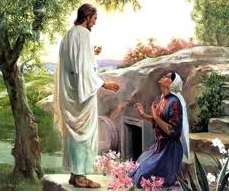|

Easter Faith Forum_Easter marks a time of hope for those of all faiths-
The Indianapolis Star April 23 2011
Kanwal Prakash Singh
Interfaith and Sikh community leader
For over 2 billion Christians, the miracle of the resurrection of Jesus Christ, three days after his crucifixion in Jerusalem on Good
Friday more than 2,000 years ago, is a living testimony of God's power and unbound love. This joyous commemoration of Easter is the story of one of the most celebrated manifestations of faith and God's assurance personified.
The awesome power and universal benevolence of God find echoes and affirmations in all spiritual traditions and faith scriptures. The sacred Bible reminds us: "With God, all is possible." The Sikhs recite in Sukhmani Sahib, a part of their daily prayer: "When God's Grace is upon us, God can sustain life without breath; God can bring life back having taken it; God can resurrect new life into the lifeless elements of nature and creation."
The Sikh faith teaches reincarnation: the human soul passing through many life cycles leading to God's grace and eternal reunion. Easter generally falls close to Baisakhi, one of the most important and transforming religious events in Sikh history. Much like other sacred holidays and religious observances, Baisakhi has familiar festive elements: family gatherings, celebrations and the exchange of gifts, as Baisakhi always falls on the first day of the first Indian month (Vaisakh) on the Indian calendar. It is a time of thanksgiving, harvest of wheat crops and Bhangra (the famous and robust folk dance of the Punjab).
Today, thanks to travel, the Internet and the growing convergence of people and cultures, Easter, Baisakhi, Buddha Purnima, Diwali, Hanukkah, Christmas and other major celebrations are transcending the frontiers of culture, faith and origin.
For me, Easter marks a beautiful time of renewal across the landscape, excitement in the air and within the human heart. It is a time to reflect and honor our diverse faith heritages, and discover common spiritual ground where secular ideas, sacred traditions and myriad cultural expressions prayerfully resonate, unite and lead us forward.

|